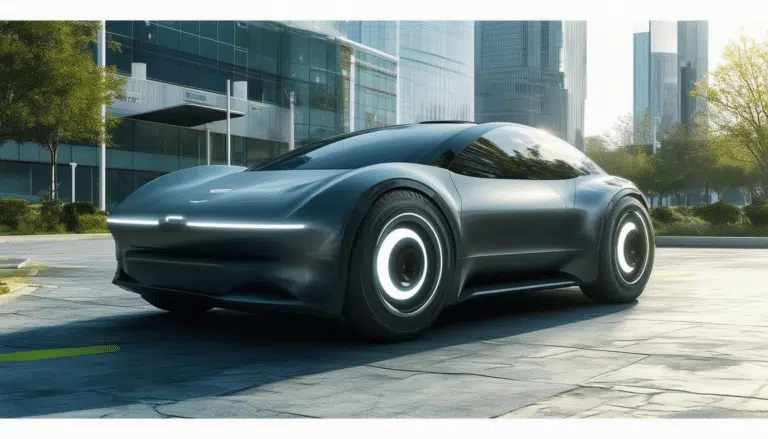Consejos sobre la compra de vehículos más eficientes en combustible

The acquisition of a fuel-efficient vehicle has become a fundamental concern for many drivers, not only due to the growing need to care for the environment but also for the economic savings it can represent. Choosing a car that consumes less fuel not only reduces CO2 emissions but also maximizes the performance of each liter of gasoline. To make an informed decision when purchasing, it is essential to consider various aspects that impact fuel efficiency and vehicle maintenance.
Choosing a fuel-efficient vehicle can be a challenging task, but with the right advice, the process can become simpler and more effective. From researching different options to comparing specific features, this article offers recommendations that help identify and select a car that not only meets individual needs but also promotes sustainability and energy efficiency.
Research and Comparison
Before making any purchase, it is crucial to conduct thorough research. Visiting specialized websites and consulting discussion forums can provide valuable information about vehicle models, their features, and their performance in terms of fuel consumption. Comparing different vehicles and their specifications can help make an informed decision.
Leveraging Efficiency Ratings
The efficiency ratings offered by various organizations allow for identifying how vehicles perform in terms of fuel costs. These evaluations reflect consumption both in urban conditions and on highways. Choosing a car with a good efficiency rating translates into long-term savings.
Regular Maintenance
One of the keys to ensuring that a vehicle maintains its efficiency is to carry out regular maintenance. This includes checking the condition of the tires, oil, and filters. A car that receives proper maintenance will not only perform better but will also consume less fuel, which in turn leads to significant savings on expenses.
Planning Efficient Routes
The way vehicles are used also impacts fuel consumption. Planning routes before leaving can help avoid traffic jams and congested areas, thereby minimizing driving time and fuel use. There are apps available that facilitate this task and allow choosing the best routes based on real-time traffic.
Utilizing Technology
Nowadays, many vehicles come equipped with technologies that enhance fuel efficiency. Devices such as start-stop systems help reduce consumption during stops. Considering these technological advances when choosing a vehicle can provide an additional boost to energy efficiency.
Reducing Weight and Unnecessary Load
A lighter vehicle consumes less fuel. Therefore, it is advisable to avoid carrying unnecessary items in the car that add weight. Similarly, if a roof rack will be used, it should be removed when not in use, as it can negatively affect aerodynamics and increase consumption.
Learning to Drive Efficiently
The driving technique plays a fundamental role in fuel consumption. Driving smoothly, avoiding harsh accelerations, and maintaining a constant speed are practices that contribute to better efficiency. Additionally, turning off the engine during long stops can help conserve fuel, especially in heavy traffic situations.
Keeping an Eye on Electric Vehicle Offers
Purchasing an electric vehicle is an increasingly popular option for those seeking fuel efficiency. These vehicles typically have lower operating costs and are more environmentally friendly. Taking the time to explore available options and state incentives can also be beneficial.
Leveraging technological advancements and staying informed about various vehicle options ensures that the purchasing decision aligns with long-term sustainability and savings goals.
Finally, it is always a good idea to consult online sources to learn more about vehicle maintenance and other tips that will maximize fuel efficiency and reduce costs. For more information, one can refer to sites like why electric systems maintenance is vital for fuel economy, expert tips for fuel savings or vehicle maintenance tips that will save you gas.
When considering the purchase of a vehicle, it is crucial to opt for models that offer superior fuel efficiency. Conducting thorough research on the different available options can make the difference between high fuel costs and significant long-term savings. Energy efficiency labels can be a useful guide to identify cars that consume less, saving money and reducing environmental impact.
Comparing different models is essential. Not all vehicles in the same segment offer the same efficiency. Using comparison platforms can help identify which one best suits needs and budget. Additionally, taking into account the type of engine and the technology they use, such as hybrids or electrics, can be decisive in achieving fuel savings.
The maintenance of the vehicle also plays a vital role in efficiency. A car that receives regular care, such as oil changes and tire checks, tends to operate more efficiently, reducing gasoline consumption. In fact, looking after aspects like tire pressure and vehicle weight can help maximize fuel performance.
Finally, do not underestimate the importance of efficient driving. Adopting smooth driving habits, such as avoiding harsh accelerations and respecting speed limits, not only increases fuel savings but also prolongs the vehicle’s lifespan. In summary, when purchasing a more fuel-efficient vehicle, it is essential to research, compare, and care for every detail, resulting in a more sustainable and economical driving experience.





